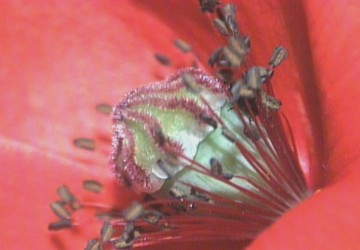 |
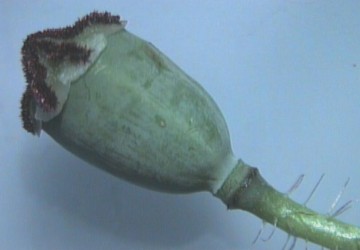 |
by John Garrett
In June/July many of the fields round this part of Suffolk are ablaze with poppies. Once they get a foot-hold in a field they seem to spread each year. On our fields they started by being imported with soil that was used when a ditch was piped and then filled in. Now we have a good border along the road and a few "escapees" getting further into the fields.
 |
 |
Besides the wonderful lustre of the petals, poppies have a beautiful way of storing and then distributing seed. The seed head, which is about 1cm long, dries from a green colour to a pale brown and, when it is dry, the top edge of the side wall has a row of holes that open up for the seed to pour through - somewhat like a pepper from a pepper-pot.
 |
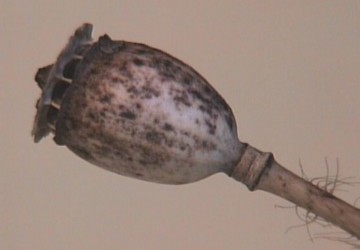 |
What is this "spider" for? My guess is that when the poppy is in bloom these mauve rays on the disc shaped stigma are covered with something that insects like and that incoming pollen gets stuck to them. As the head dries, so the rays become darker. What puzzles me is that the number of rays varies, even between flowers on the same plant. I have counted between 7 and 12, so far.
Inside the seed-head in line with the rays are thin walls (styles?) dividing it into segments, rather like in a grapefruit.
Everyone knows that poppy seeds as found on some bread are round and black. Well, have a look at these!
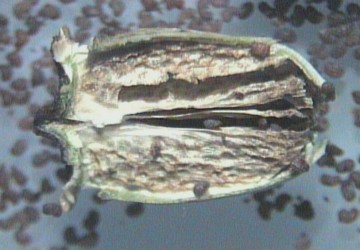 |
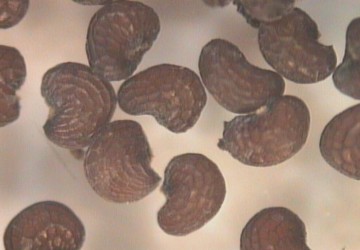 |
Comments to the
author John Garrett are welcomed.
Email:antenna@btinternet.com.
Homepages: http://www.btinternet.com/~jg/microscopes.html
All Material
Copyright © John Garrett
Published in the September 1999 edition of Micscape Magazine.
Please report any
Web problems or offer general comments to the Micscape Editor,
via the contact on current Micscape Index.
Micscape is the
on-line monthly magazine of the Microscopy UK web
site at Microscopy-UK